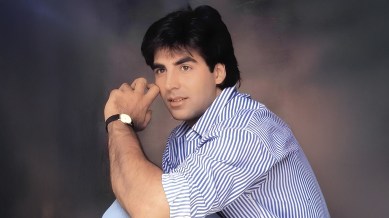📣 For more lifestyle news, click here to join our WhatsApp Channel and also follow us on Instagram
‘Main nashe me khaana banane lag jata hoon’: Akshay Kumar on being an occasional light drinker; why forgotten passions and hobbies resurface after alcohol
Alcohol affects the limbic system, the emotional centre of the brain, making us more likely to access buried feelings, nostalgia, or sensory memories.

Akshay Kumar has a strong reputation of being a teetotaler who is very particular about his fitness and health. While the Bhool Bhulaiyaa actor is known for usually keeping alcohol at bay, he has his own share of old drunk memories, albeit a few. In one episode of Salman Khan’s then-hosted show 10 Ka Dum, Akshay Kumar revealed that he is a light drinker, and even a glass of wine is enough to get him going.
“Koi occasion hota hai.. Wife ka birthday hota hai, mera birthday hota hai to mai thodi bahut wine pee leta hu. Magar mai itni bhi wine pee leta hu to mujhe nasha ho jata hai” (If there’s any occasion like my or my wife’s birthday, I don’t mind a glass of wine. But even a little of it is enough to get me drunk)
He further admitted that his drunk behaviour is in contrast to the majority of people. While some people dance and sing, or get angry, and even fall down, the actor starts cooking: “Nashe me log nachte hain, gate hain, gussa ho jate hain, gir jate hain… Mai khana banana shuru kr deta hu. Mai apni aukaat pe aa jata hu,” he said, referring to his pre-Bollywood days when he worked as a chef in Bangkok.
But Akshay Kumar isn’t alone in this behaviour. Many people tend to get impulsive and get back to their old habits or long-forgotten passions after getting drunk. To fully understand how and why this fascinating thing happens, we reached out to Neha Cadabam, Executive Director and Senior Clinical Psychologist at Cadabams Hospitals.
Q1. Why do some people suddenly get more creative or nostalgic and start doing things they loved in the past – like cooking at midnight – after having a drink?
The psychologist explains that alcohol momentarily lowers inhibitions and quiets the “inner critic” that usually keeps our impulses in check. This temporary disinhibition can make them more attuned to their emotions and spontaneous urges. “When that happens, old passions or comforting activities like music, art, or even late-night cooking may resurface because they are linked to positive memories or a sense of self-expression. In a way, alcohol removes the ‘shoulds’ and brings out the ‘wants’ that we often suppress in our structured, responsible adult lives,” she said.
Q2. Why do certain hobbies or forgotten passions resurface only after a few drinks, even if they haven’t been touched in years?
Our brains store emotional memories very differently from factual ones, Cadabam tells indianexpress.com, adding that alcohol affects the limbic system, the emotional centre of the brain. This makes people more likely to access buried feelings, nostalgia, or sensory memories. “A person might suddenly feel drawn to an old hobby not because the alcohol created a new desire, but because it temporarily lowered the mental noise that usually drowns out those emotional cues. Essentially, it gives forgotten joys a chance to be heard again.”
Q3. How different is this impulse in a person who rarely drinks, an occasional drinker, and someone who drinks regularly?
“For someone who rarely drinks, this experience can feel more pronounced because their brain is not accustomed to the altered state that alcohol brings. They may feel a stronger release of repressed emotions or creativity,” Cadabam notes. She further explains that occasional drinkers may experience a milder version of the same, familiar, but still noticeable. “Regular drinkers, on the other hand, often build a tolerance, meaning the psychological ‘release’ becomes less distinct over time. What starts as a liberating feeling can eventually become habitual and emotionally numbing rather than expressive.”
Q4. For people with highly disciplined lifestyles, does occasional indulgence in alcohol serve as a psychological release?
The psychologist notes that people who live highly structured or perfection-driven lives tend to suppress spontaneity and emotional expression. “Alcohol, in moderation, can momentarily lower those rigid boundaries and allow for a sense of freedom and creativity that feels refreshing,” says Cadabam, clarifying that it is only occasionally and not a rule. “If a person starts relying on alcohol as their only outlet for release or creativity, it can indicate a deeper imbalance between control and self-expression that might need to be explored in therapy or self-reflection,” she concludes.
📣 For more lifestyle news, click here to join our WhatsApp Channel and also follow us on Instagram